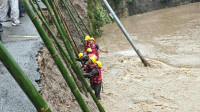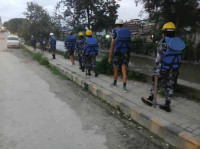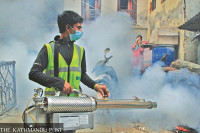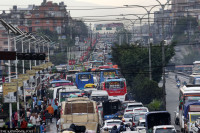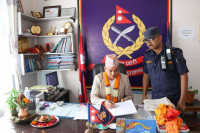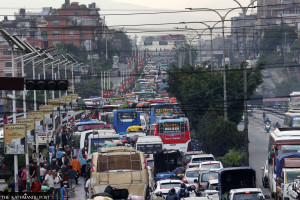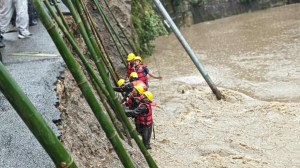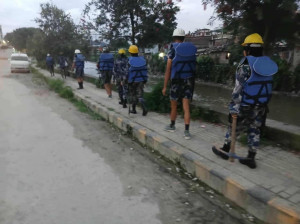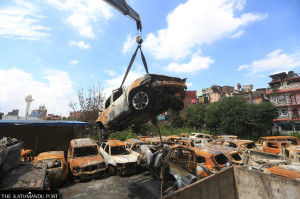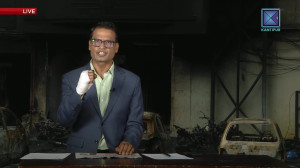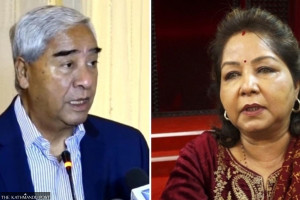Valley
Poor coordination hits KMC’s revenue target
Despite introducing a host of new taxes this fiscal year, the Kathmandu Metropolitan City has failed to collect them due to lack of coordination between its own departments.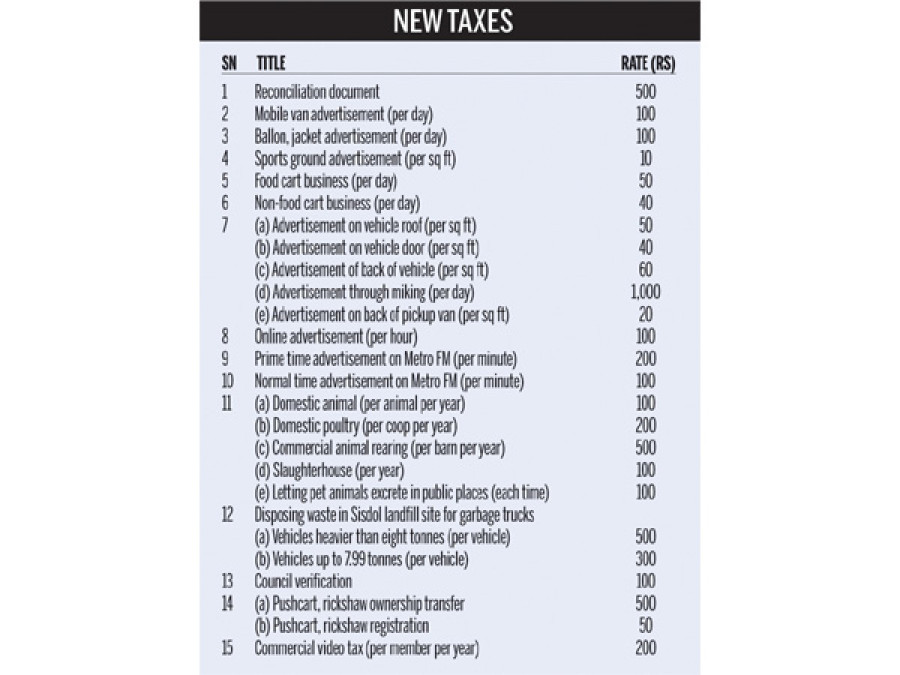
Gaurav Thapa
Despite introducing a host of new taxes this fiscal year, the Kathmandu Metropolitan City has failed to collect them due to lack of coordination between its own departments. The metropolis is set to fall awfully short of its target to add more than Rs30 million revenue per year.
As per the decision of 26th meeting of Municipal Council last year, the KMC decided to collect taxes and fees under 15 new headings to include previously untaxed items like vehicle advertising, food carts and domestic animals beginning the fiscal year 2015/16. But the tax collection has been poor, conceded chief of Revenue Division Dhurba Kafle.
According to Kafle, new taxes are being collected only under four headings, while the process for most others has not started yet. “So far, we have collected reconciliation document charge from some 30 people and have roped in about 87 vehicles for advertisement tax,” he said. “Although we had planned to add Rs31.2 million from the new taxes, that is all we have managed so far, more than six months into the fiscal year.”
The Revenue Division needs support from other departments of the KMC for implementing most of the taxes. For example, Public Health Division is responsible for registering domestic animals on the basis of which the KMC can levy domestic animal tax. Kafle said that they were waiting for a response from the Public Health Division in this regard.
Chief of Public Health Division Hari Kumar Shrestha, however, said the entire responsibility of the taxes falls upon the Revenue Division.
Kafle also blamed the Environment Division for not collecting taxes from garbage trucks that dispose waste at Sisdol landfill site. The charges are to be collected on the site itself, Kafle said, adding that his office had already printed receipts for the purpose and sent them to the Environment Division. But chief of Environment Division Rabin Man Shrestha shifted the blame back to the Revenue Division.
This lacklustre approach towards levying these taxes means the targeted amount will now be recorded as debt in the metropolis’s accounts. In the last fiscal year 2014/15, the KMC had collected Rs930 million from its internal sources against the target of Rs1.34 billion. Although this year’s progress report has yet to arrive, informed sources say that the KMC will not be able to achieve its target of raising Rs1.54 from its internal sources this year too.
Meanwhile, the KMC has also failed to bring cable TV operators in the city into its tax net. According to Kafle, there are about 18 cable TV operators in the metropolis and each of them is liable to pay Rs200 per user per year under the new commercial video tax provision. “These operators have been paying Nepal Telecommunication Authority and Nepal Electricity Authority for using their utility poles. But they should also pay the metropolis for causing visual pollution,” Kafle said, adding that the KMC has been managing the cables on the poles at different places and “the operators should pay for the service”.
On a different note, the KMC has also not been able to impose taxes on producers of packaged food items for managing the packages of these products which are discarded as waste. Article 18 of the Solid Waste Management Act 2011 has authorised local bodies to impose and collect service fee from the concerned person, institution or body for the management of solid waste.
Kafle said that the KMC is in the process of identifying the producers and distributors who use tetra packets or bottles for their products like noodles, edible oil, milk, alcohol, tobacco and ‘gutkhas’ inside the metropolis.
Thimi Municipality unveils Rs 212m budget
BHAKTAPUR: Madhyapur Thimi Municipality has announced a budget of Rs 212 million for this fiscal year.
Municipality’s Chief Executive Bhupendra Sapkota said on Wednesday that Rs 66.2 million would be mobilised through its internal resources and Rs 144 million would be a grant from the centre. Out of the total budget, Rs 99 million has been allocated for planning and implementation, and Rs 58 million for target groups in the municipality.
Similarly, Rs35 million has been set aside for planning of the 17 wards, Rs 22 million for municipal conducts, Rs 36 million for drainage maintenances, and Rs 10 million for the preservation of art, culture and cultural heritages of the municipality.
Speaking at the programme, Sakpota said the budget would focus on reconstruction and rehabilitation. He also announced that the municipality would waive revenue and household taxes for people whose houses were damaged by the earthquake. He also said to waive 75 percent of the design fee to reconstruct houses destroyed by the quake or build a new one. (PR)




 16.24°C Kathmandu
16.24°C Kathmandu

